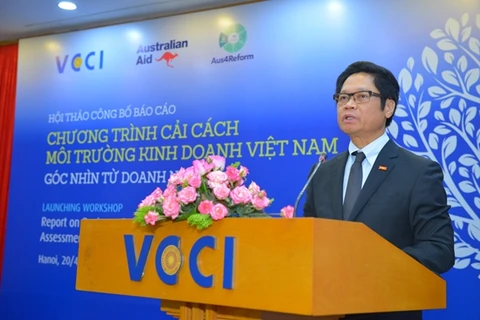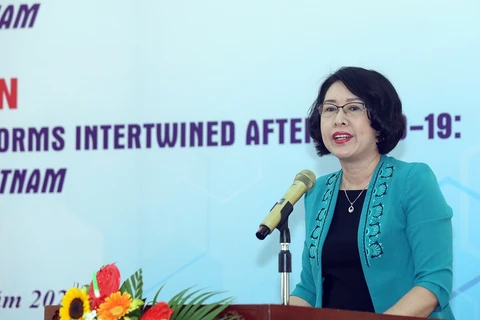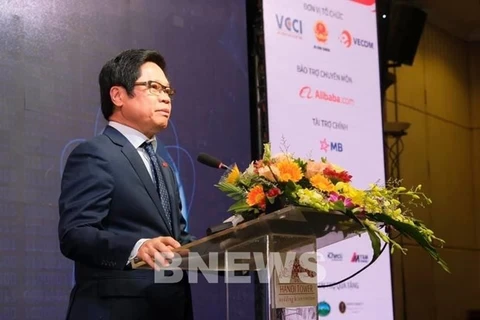Hanoi (VNA) – The Central Institute for Economic Management (CIEM) introduced two scenarios for Vietnam’s economic growth in 2021 during a workshop held in Hanoi on July 15.
The event was co-hosted by the CIEM and the Australia Supports Economic Reform in Vietnam (Aus4Reform).
Efforts maintained to ensure dual goal
Addressing the event, Nguyen Anh Duong, head of the CIEM's General Research Department, said in the first scenario, if the pandemic is curbed by October, with the resumption of production and economic activities, the country should see economic growth forecast to expand by 5.9 percent.
In the more optimistic second scenario, the COVID-19 pandemic will be under control by August, with the rate projected to expand by 6.2 percent, Duong added.
The average rate of inflation is estimated to be 2.6 percent and 2.8 percent in the two scenarios, respectively.
Meanwhile, exports are expected to grow by 16.4 percent in the first scenario and 18.3 percent in the second scenario. Vietnam’s trade surplus is forecast to stand at 4.2 billion USD and 5.4 billion USD, respectively.
CIEM experts said other factors that can affect growth include the progress of public investment disbursement, macroeconomic stability, facilitation and transformation of the digital economy, opportunities from next-generation free trade deals and opportunities for women in the workplace.
CIEM Director Tran Thi Hong Minh suggested three important measures to control the pandemic and propel economic growth, including synergy between macroeconomic policy and reforms aimed at a greener and more sustainable recovery, promoting business recovery and improving internal capacity amid global economic integration, and accelerating innovation and science-technology towards digital economic development.
The Government will still give priority to ensuring macroeconomic and social stability, Minh said, stressing the special importance of controlling inflation to achieve this.
Minh said the Government needs to continue to propose many reform solutions and tasks to promote innovation and the development of the digital economy and effectively implement new FTAs and sustainable economic development models.
Duong said that with the GDP growth rate reaching 5.64 percent in the first quarter, Vietnam is likely to record expansion in the near future.
Vietnam continues to be in the group of Asian countries that are maintaining high economic growth but it is a huge challenge for the country to achieve its growth targets.
Promoting comprehensive reform
Duong also pointed out challenges in the recent period, including the difficulties facing businesses amid COVID-19, and the slow disbursement of public investment.
Many enterprises have had to actively consider adjusting production and business activities, he said.
According to Duong, the country earned 158.3 billion USD from exports in the first six months, up 29 percent year on year, but it spent 159.3 billion USD on importing goods, up 36.2 percent. As a result, the country experienced a trade deficit of 1 billion USD in this period.
Duong said Vietnam's trade activities may face several challenges, such as the disparity in the growth experienced during the recovery among partner groups.
Markets can require new standards and more commitments and technical requests related to origin regulations, labour, the environment and disease prevention.
Vietnam may also face relevant regulations and sanctions regarding data protection and differing tax policies for cross-border e-commerce activities as mechanisms to protect the interests of Vietnamese businesses are still in the pilot phase.
Vietnam needs to have early solutions to reduce trade deficits with its partners that joined the Regional Comprehensive Economic Partnership (RCEP) agreement while reducing its dependence on the foreign-invested sector for exports, CIEM representatives said.
It is necessary to improve resilience to economic shocks instead of avoiding shocks, they added.
They also underlined the importance of Vietnam actively seeking incentives from regions and partners that can recover early from the COVID-19 pandemic, while promoting private economic development in connection with FDI./.


























